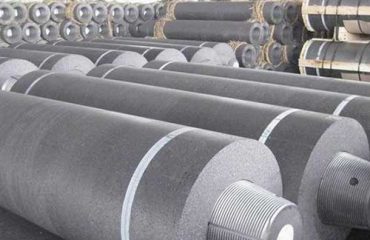Carbon electrode is made up of elemental carbon. Carbon electrode has the advantages of excellent conductivity, heat resistance, chemical corrosion resistance, high mechanical strength and easy processing. It is widely used in metallurgy, chemical industry, electrochemistry and other industries, such as electric arc furnace electrode, electrolysis electrode, battery electrode and so on. According to the types of raw materials and preparation methods, they can be roughly divided into natural graphite electrode, artificial graphite electrode, carbon electrode and special carbon electrode.
Natural graphite electrode is made of natural graphite and adhesive by mixing, molding and firing. It is mainly used in various kinds of electric arc furnace electrode. Because natural graphite is easy to intercalate, it is not suitable for electrolysis. Artificial graphite electrode is made by mixing raw materials (petroleum coke, pitch coke, anthracite, carbon black, etc.) with adhesives (coal tar, coal tar pitch, synthetic resin) and additives, and carbonized at 1000 ~ 1400 ℃ and then graphitized at 2000 ~ 2500 ℃. It can be used for electrolysis electrodes of various alkali metals and alkaline earth metals. Carbon electrode is prepared by carbonization of pitch coke, petroleum coke and adhesive. It is not graphitized and its conductivity is not as good as that of artificial graphite. It can be used in electrolysis of aluminum and magnesium, battery electrode, etc. Special carbon electrode refers to the electrode made of special carbon material, mainly including porous carbon electrode based on carbon fiber, which can be used in fuel cell; glass carbon electrode made by carbonization of thermosetting resin has high purity and chemical corrosion resistance, which is used for analysis.


